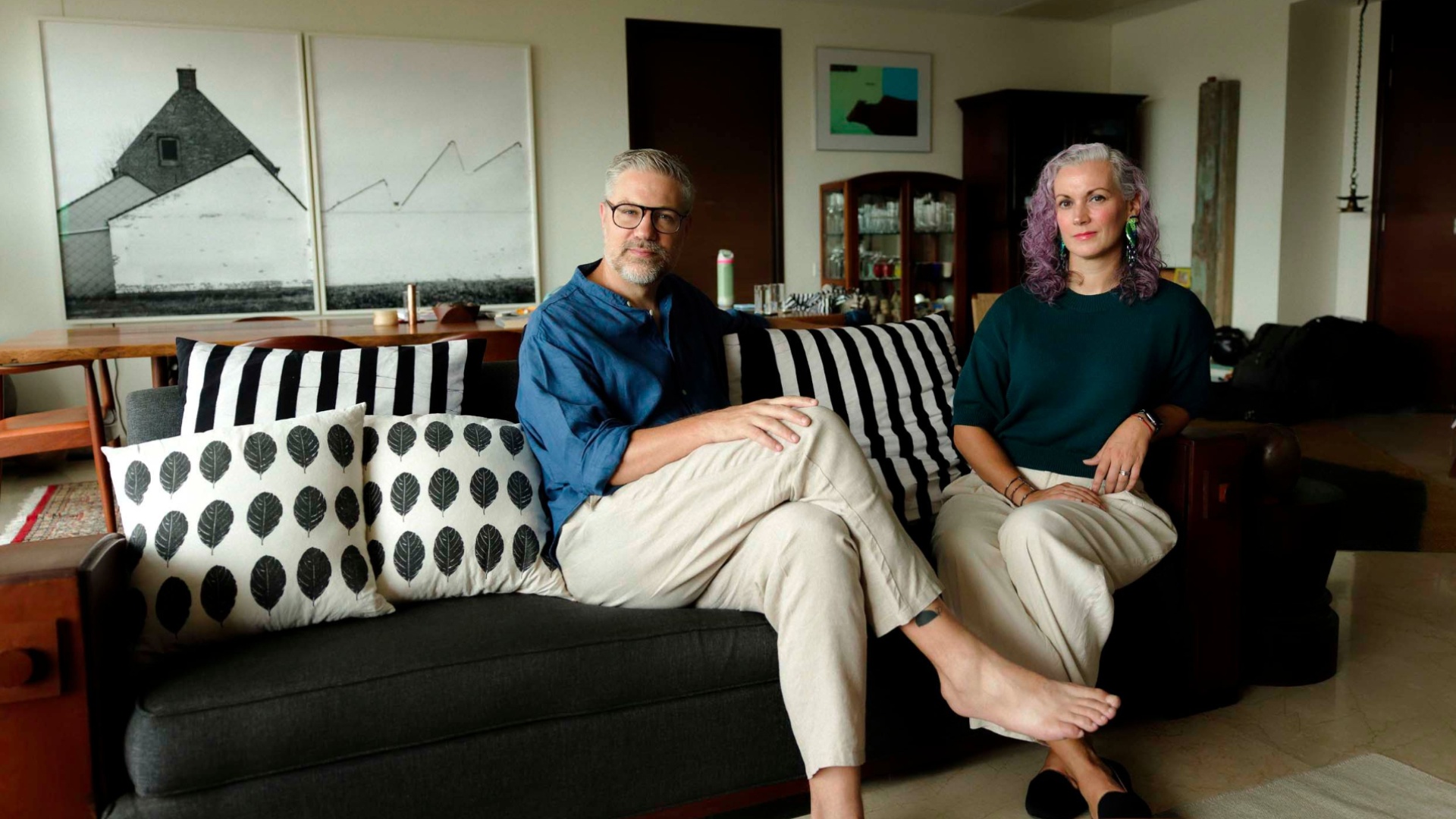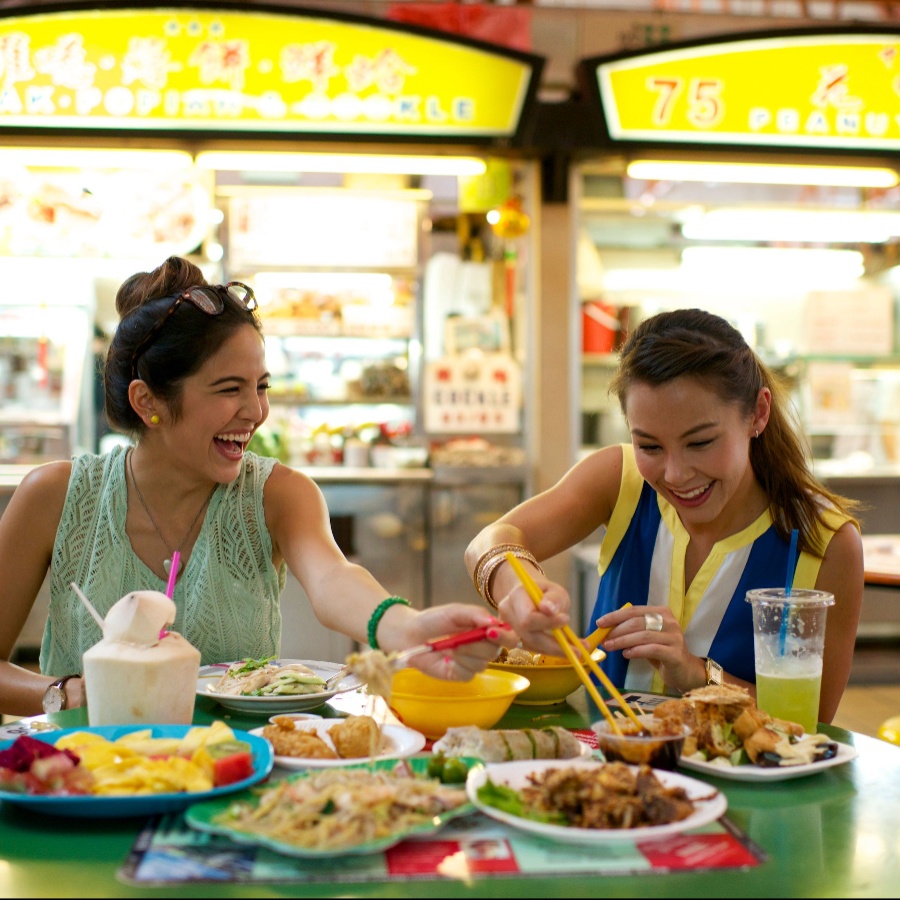Twenty years ago, Sam and Erica Barclay had a plan: graduate college, get married, make a career. The end. The childhood sweethearts, who ‘met’ at the age of five and grew up in the same rural Michigan town, hadn’t bargained on moving to India, much less permanently. “Ours is a story that will either make you go ‘awww’ or roll your eyes—you decide,” Erica had mused when I interviewed the couple several years ago. (For the record, I had awww-ed.) After attending undergraduate school in different states, they made a move to Los Angeles for graduate school—Sam at the Southern California Institute of Architecture for an MA in Architecture and Erica at the University of Southern California for an MS in Education. They didn’t know then that this was just the beginning.
It was in California that Sam began dabbling in small projects—“a concrete countertop here, a chest of drawers there, an office interior,” he reflects. Erica puts a finer point on the subject. “I was a teacher working in Pasadena but would often get pulled in to help on projects; sanding furniture all night in the shop, installing pieces on site, or entertaining the children of clients,” she says over Zoom from the couple’s vacation home in Michigan. Sam christened the business Case Design and bought a website domain—dopedetails.com—as a joke, a joke that quickly became serious. No sooner had he sunk his teeth into the business than he got a call from the architect Bijoy Jain of Studio Mumbai, who was one of his teachers during a study programme in India shortly before. It didn’t work then, and for the next seven years, he forgot all about it.

The couple moved to Mumbai in 2006 after Sam got a call to work with Bijoy Jain
But today, through a screen from halfway across the world, as if by some minor miracle, he manages to muster every detail. To wit: how he and Erica moved to India in 2006 with two suitcases apiece. How he crossed paths with the most impassioned karigars. How understood he felt despite not speaking their language. “I once managed a site of 130 people and the only person who spoke English was deaf. But everyone was so willing to communicate,” he reminisces, pausing to summon the memory. Erica settled down too: she made a circle of close friends, worked as a teacher and later rose to Head of Admissions at the American School of Bombay, and cultivated what she calls, “a chosen family.” When it came time to bid adieu to Jain and Studio Mumbai in 2013, the couple, by now parents, were at a crossroads: to leave India or stay on.
Had it not been for dear friends who enlisted Sam to build a sustainable school for underprivileged girls—this would later become the Avasara Academy in Pune, known as much for being a lesson in architectural restraint as an academic institution—the Barclays probably would have left. “From there, people started calling about this project or that, and things just took off,” remembers Sam. The this and that projects included a home in Alibaug to restaurant design in Mumbai. A few years later, he partnered with designer Saleem Bhatri, a former collaborator at Studio Mumbai and the present-day Dean of the Faculty of Design at CEPT, and the duo decided to breathe life into Case Design 2.0.
Their studio began as a small setup in the Barclays’ dining room in Bandra, but soon took on a life of its own, evolving into a standalone practice with projects including a small sustainable eco hotel in Zanzibar, a farmhouse in Kamshet and even a resort in Uttarakhand. The firm recently designed Otra, a brooding restaurant in Mumbai’s Kala Ghoda, whose owners happen to have been a close friend of the Barclays for over two decades now.
Case Design’s calling card has always been to “create things that are simple, beautiful and functional, and explore the design process through acts of making and collaboration,” whether that be through other individuals or studios. “I had a teacher in school who used to say the secret to getting more work is doing good work,” Sam says, “It’s pretty sound advice.”
During our interview, the Barclays are supposed to be on vacation. “But are you really?” I enquire, half-joking, half-accusing. They are, they nod—if a vacation involves back-to-back Zoom meetings with clients, work updates from colleagues and even an interview with the odd nosy journalist (me) for the better part of each morning. “About six years ago, we bought a house here,” Erica explains when asked how often they fly back to the US, “so we end up visiting twice a year—once in the summer or monsoon and once at Christmas.” In the months in between, “we’re mostly travelling,” Sam submits.

Case Design's calling card is to create pieces that are simple, beautiful and functional
In 2022, the Barclays and Bhatri set up Casegoods, a company dedicated to designing ergonomic, high-quality furniture, lights and objects. “Our first real product, even before Casegoods was an actual company, was a folding chair for a cafe in Dubai. We needed to squeeze 10 chairs into a very small space, so we designed each one to fold to less than four cms wide.” It quickly became a hot favourite—so hot that the design was recently licensed to Denmark-based furniture studio FRAMA, though Casegoods still retains the rights to manufacture and export the seat in teakwood and rosewood.
It’s one thing to move to another country indefinitely, but quite another to have kids while at it. “We didn’t anticipate it, but this is home for them. They truly are Bombay babies,” Erica says of the couple’s 16-year-old daughter and 12-year-old son. “Every time we’re in Michigan, our families are highly entertained by their Indianisms—saying ‘lift’ instead of ‘elevator’ and ‘bin’ over ‘trash’,” she laughs. Their Michigan home is about 50 kilometres away from their respective parents’, precisely a half hour drive. “But you couldn’t get to Bandra from Andheri in half an hour, and that’s probably 14 kilometres, so no one’s complaining,” Sam deadpans.
As if his hands weren’t already full enough—“I don’t want to be managing more than I already am,” he jokes later—in 2022, he co-founded yet another company, Solarpunk Futures, alongside Goa-based entrepreneur and developer Akshay Tandon. “The idea was to build a structure or practice that provides sustainable goods and services for architects, developers, builders, and even end clients to some degree. A lot of people have the notion that to be sustainable you have to renounce all worldly pleasures and go live in Auroville. But if you look at, say, a Tesla car, a lot of energy minimisation measures are built-in, and there's no compromise on the quality,” he avers. The idea is to make sustainability sexy. If all goes well, his prototype, an environmentally sensitive villa in Nachinola, Goa, will spawn off a 13-acre township in the coming years.

Even on vacation, the Barclays spend their mornings in back-to-back Zoom meetings
Surely, after so many years, the couple has mastered Hindi? “I’m terrible,” Sam grins. “It’s a funny thing, living here. Erica’s job keeps her largely in the expat bubble, so she has one foot there, and the other foot here, in my world, where a quarter of meetings happen fully in Hindi. I think that’s what's been interesting on the journey, and part of what's attractive to us as well.”
In December, they will kick start their first ever project in the US, a suburban villa in Dallas. Is it a sign that they’re moving back? “Our daughter will graduate in two years, and then our son has six more, so, at the very least, we are, for sure, firmly rooted in Mumbai until they finish school, but as long as we’re practising, I don’t see us ever not having a home base in Mumbai,” shares Erica, who manages Case Design’s communications on a part-time basis. Sam concurs. “We’re in India 10 months a year and in the US for the other two. We’re regularly in Europe, Zanzibar and Bali. Everyone is mobile now so we can work from anywhere. Yes, the base is Mumbai, but it could just as easily be anywhere else,” he signs off.





